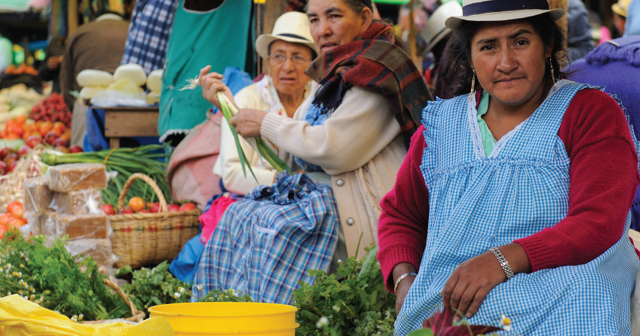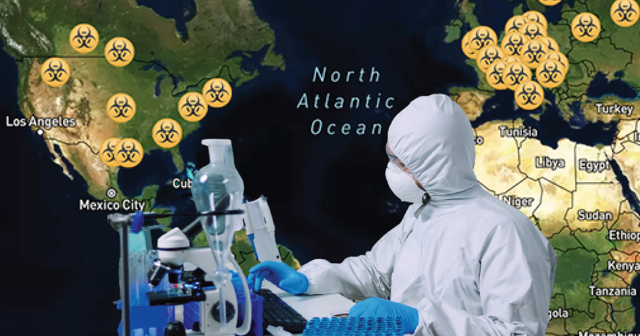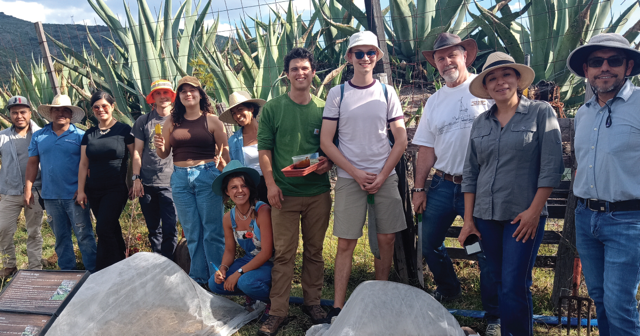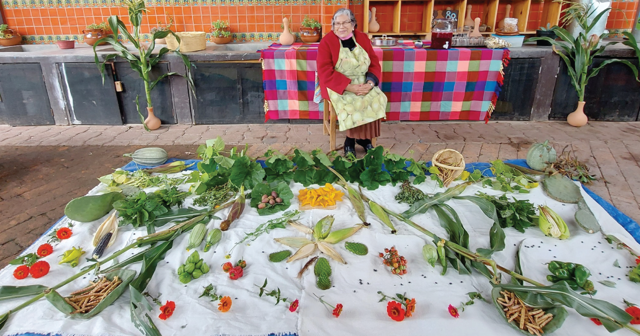
FOOD SYSTEMS
Corporate Takeover of the Global Food System Should Not Get UN Approval
Shalmali Guttal Sofia Monsalve writes for openDemocracy:
“Small-scale farmers and Indigenous groups say they have again been shut out of the UN Food Systems Summit.
A U.N. summit on global food systems should be an opportunity to address structural inequalities and tackle hunger. It should be a chance to learn from small-scale producers whose sustainable food practices feed 70% of the world. Instead, next week’s conference in Rome will be a festival of greenwashing, allowing Big Agriculture corporations to tighten their grip on food systems.
Food is a common good and access to healthy and nutritious food is a basic human right enshrined in U.N. covenants. These are the issues that governments and the U.N. should focus resources on, and next week’s summit provided a perfect opportunity.
Sadly, it looks set to simply consolidate corporate control over food and natural resources.
Hundreds of grassroots groups have called out the U.N., saying they are still being excluded and claiming the summit is “poised to repeat the failures” of two years ago and want to see fundamental change in food systems.
Here’s the picture as it stands. A handful of agribusinesses control more than 70% of the world’s farmland. Smallholder farmers, fisherfolk, pastoralists, and Indigenous peoples, who use agroecology and other sustainable practices, feed 70% of the world’s population with just 10% of global farmland.”
Real Farms Not Fake Food, Ask Your State Legislators to Ban Lab-Grown Meat

STOP WEAPONIZING PATHOGENS
Stop Weaponizing Pathogens! Ban Gain-of-Function Biolabs!
People are worried about the biolabs in their backyards.
From Boston, Massachusetts, to Manhattan, Kansas, to Berkeley, California, activists have tried to stop risky gain-of-function research to weaponize potential pandemic pathogens.
Now, states and localities are starting to take action.
Florida has banned enhanced potential pandemic pathogen research and San Carlos, California, has banned higher-risk biolabs. A bill in Texas to restrict research on potentially pandemic pathogens passed out of committee, but didn’t get a floor vote.
TAKE ACTION: Ask your state legislators to ban gain-of-function biolabs!

HEALTH ISSUES
5 Health Studies Going On Now (And What They’ll Mean For The Future)
Chalkboard Editorial Team writes:
“Max Lugavere is a NYT best-selling author, science journalist and top podcast host of The Genius Life. His book Genius Foods is a must, and we love his recipe book Genius Kitchen.
We know Max has his finger on the pulse when it comes to emerging research on brain health and general wellness, so we asked him to share the most notable studies he’s been paying attention to lately…
Is a 4-day work week a healthier work week?
Can the Mediterranean diet reduce dementia risk?
Do almonds increase gut-healthy butrate?
Can daily walks support brain health?
Can nuts help us better recover from exercise?”

APPETITE FOR A CHANGE
It’s Time to Ban Red Dye No. 3
“Health concerns keep shrinking the roster of approved artificial dyes.
When synthetic food dyes were newer, their shortcomings were hard to miss. One of the colorants’ main ingredients was derived from the by-products of the process that turned coal into fuel—and in the absence of careful scrutiny, some early batches of the dyes ended up contaminated with arsenic, mercury, and lead. Companies also used the dyes to conceal defects or spoilage that then sickened many people.
In recent years, European countries have appended warning labels onto the products that contain them; the United States has whittled down its once-long list of approved artificial food dyes to just nine. The FDA is now reviewing a petition to delist Red No. 3, which colors candy corn, conversation hearts, and certain chewing gums and cake icings; California and New York are mulling legislation that could ban the additive, along with several others, by 2025.”

REGENERATIVE AGRICULTURE
Seed Saving 101: Everything You Need to Know
Libby Leonard writes for Eco Watch:
“During the pandemic, many turned to gardening as a refuge. According to a survey, while many did it because they were concerned about food access and food security, others also said it was mainly a way to feel less isolated and depressed, and as a way to grow food for the community.
So many people turned to “pandemic gardening” that seed companies couldn’t keep up with the demand. During this time, the practice of saving seeds also started growing in popularity, but why is it important?
Traditionally, the process of saving seeds has been practiced for thousands of years, particularly in Indigenous communities who rely on crops not just for food, but for social and cultural purposes. It has been and still is not only an investment in future harvests, but a critical lifeline to the environment, food security, and the preservation of cultures.”

PLANTING PEACE
21 Phenomenal Visionaries Who Enact Revolutionary Change and Build Indigenous Power
NDN Collective reports:
“On Wednesday, May 17th, NDN Collective announced the 2023/24 NDN Changemaker Fellow Cohort, consisting of 21 Indigenous leaders from throughout Turtle Island and beyond who are radically transforming Indigenous communities by defending Indigenous lands, waters, and rights; developing solutions for the future that regenerate the health of the Earth and our communities; and revitalizing our languages, governance practices, ceremonies, and ways of life.”

FARMERS’ RIGHTS
EU Commission Proposal Favors Biopiracy Over Rights of Farmers and Citizens
European Coordination Via Campesina reports:
“On July 5, the European Commission presented its proposal to create a new regulatory framework for certain GMOs . This proposal gives centre stage to biopiracy and the privatization of all seeds by patent-holding companies, to the detriment of farmers’ rights to seed. European Coordination Via Campesina (ECVC), which represents peasant farmers across Europe, calls on the European Parliament and European Council to reject this unacceptable proposal.
The European Commission is looking to abolish the traceability of GMOs resulting from “new genomic techniques” and remove labelling requirements for foods derived from these GMOs. This will help seed companies to push them on the overwhelming majority of the population that currently chooses to avoid GMOs. Behind its pseudo-scientific verbiage, the complexity of the rules proposed by the Commission deliberately renders them unworkable.
By removing the obligation of traceability, they have intentionally wiped out all means of verifying that these rules are being applied. On the contrary, the Commission has shown its true colours, putting its trust in the declarations of the self-serving seed industry. On the one hand, when it suits their interests these industry voices claim that their patented GMOs are indistinguishable from plants derived from traditional, non-patentable selections. Yet, when it is in their interests, they will employ an arsenal of techniques to identify their patented genes and any infringement of their patents. The industry will thus be able to claim, without fear of being inspected, that its seeds obtained using new genomic techniques are obtained using other techniques.”
More info about the European Commission’s proposal to deregulate GMOs.

SUPPORT OCA, CRL, & RI
Regeneration Revolution
Our once hoped-for global community of nations appear to be lurching toward corporate takeover.
The great web of biodiversity is unraveling.
Given the magnitude of the current crisis, we at OCA believe we need to expand our redemptive message of Regeneration to encompass, not only the next stage of organic food and farming and land use, but also our political policies and practices. We must step up our efforts, not only championing organic food and farming, but international peace and economic justice, Indigenous knowledge, civil liberties, participatory democracy, and regenerating health, both mental and physical. In the midst of corporate corruption and opportunism, it’s essential to focus on positive ideas and solutions.
By sowing the seeds of peace and Regeneration, we can scale-up the best practices of organic food, natural health, nutrition, and integrative medicine. We can clean up our toxic environment and our toxic politics. We can move from elite domination and technocratic surveillance and control to participatory democracy and sustainable food systems.
But in order to carry out a Regeneration Revolution we need your help.
Thank you for your ongoing support.
But if you haven’t donated recently, please consider giving us a donation today.
Make a tax-deductible donation to Organic Consumers Association, a 501(c)(3) nonprofit
Support Citizens Regeneration Lobby, OCA’s 501(c)(4) lobbying arm (not tax-deductible)

HEALTH ISSUES
There’s a Way To Get Healthier Without Even Going to a Gym. It’s Called NEAT
It’s a concept that goes by the name non-exercise activity thermogenesis, or NEAT, for short.
Will Stone writes for MPRNEWS:
“Much of our daily energy expenditure is relatively fixed. More than half of those calories go toward supporting basic bodily functions, what’s known as our basal metabolic rate.
Digesting and metabolizing food takes up another sliver of our daily energy, roughly about 10%, and likewise cannot be changed significantly.
“That leaves the remaining 30% to 40% for all your activity,” says Colleen Novak, a neuroscientist whose lab studies NEAT at Kent State University.
That’s where NEAT comes in – moving around as you go about your day can chip away at that remaining slice of the energy pie.
And even among those who do exercise regularly, NEAT usually plays a bigger role in calorie burning than working out.
Sitting up as you would at the computer only burns about 5% to 7% more calories than if you were lying down at rest. Fidgeting excessively while seated can bring that up a few percentage points.
“If I then start to move around, let’s say ironing or folding up clothes, I can move that to 15%,” he says. “But it all changes the moment I start to walk.”
Just strolling about one and a half to two miles an hour — the speed people tend to go while shopping — can double your metabolic rate.”

STOP WEAPONIZING PATHOGENS
House Votes Down Resolutions to Terminate National Emergency Powers
“In a massive show of support for limitless executive power, Congress rejected legislation that would have terminated national emergency powers allowing Washington to wage war across the Middle East.
These same emergency powers give the president the power to lift bans on testing biological weapons on US citizens.
Led by Representative Paul Gosar, a handful of Republican members of Congress launched a protest against 41 nominal “national emergency” declarations, many of which are decades old.
Rep. Gosar has argued the National Emergencies Act is “tyrannical,” granting 148 separate powers to the executive branch.
This July 18, the House voted down five resolutions to terminate national emergency powers which date back as far as 2003. The countries affected by the five resolutions include Congo, Yemen, Libya, Syria and Iraq.
Each vote saw a coalition of pro-war Democrats and Republicans join together in overwhelming numbers to protect the executive branch’s emergency authorities.”

URBAN REGENERATION
An Indigenous-Led Team Is Transforming a Minneapolis Superfund Site into a New Urban Farm

LITTLE BYTES
Other Essential Reading and Videos for the Week
Computer Chip With Built-in Human Brain Tissue Gets Military Funding
A New Trend Has Americans Going Out to Dinner Earlier Than Ever Before and With Good Reason
15 Different Types of Edible Flowers You Might Easily Find Your Garden
#SayNoToSolarGeo! Blocking the Sun Is NOT a Climate Solution!
Key Scientist in Covid Origin Controversy Misled Congress on Status of $8.9 Million NIH Grant
Antibiotics Linked to Increased Risk of Kidney Stones
Fukushima Fish With 180 Times Legal Limit of Radioactive Cesium Fuels Water Release Fears
How This 1956 John Wayne Movie Possibly Led to the Deaths of Nearly Half Its Cast and Crew
Researchers in Europe Have Found Birds Making Nests From Anti-Bird Spikes on Buildings
What Is A2 Milk and Is It Healthy? Here’s What a Dietitian Says
Popular “All-American” Companies That Are Now Internationally-Owned




